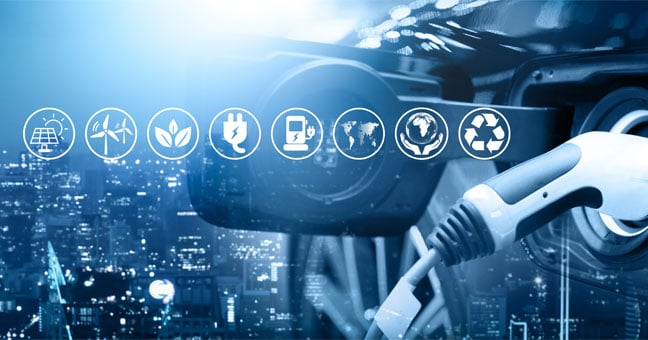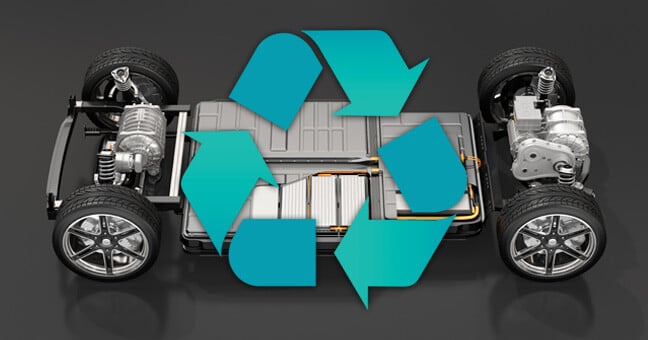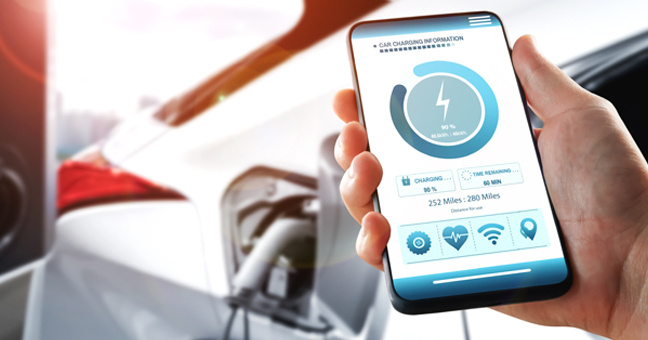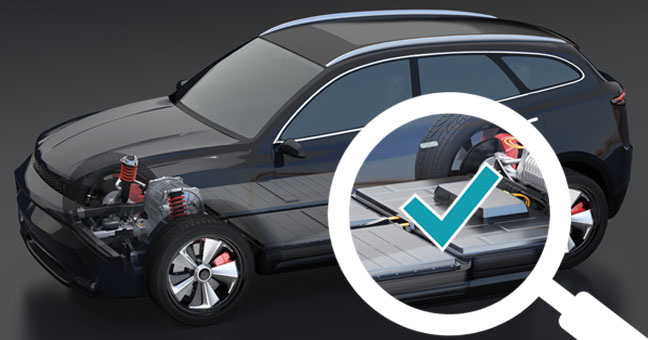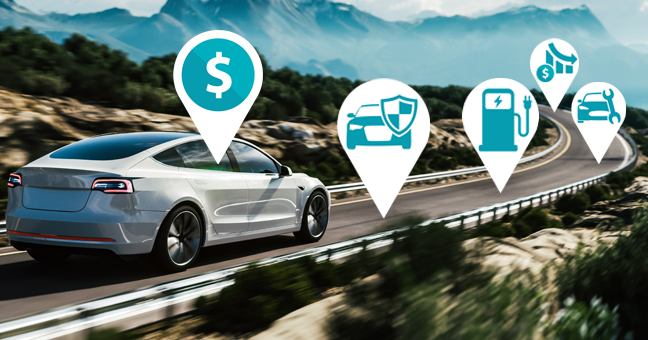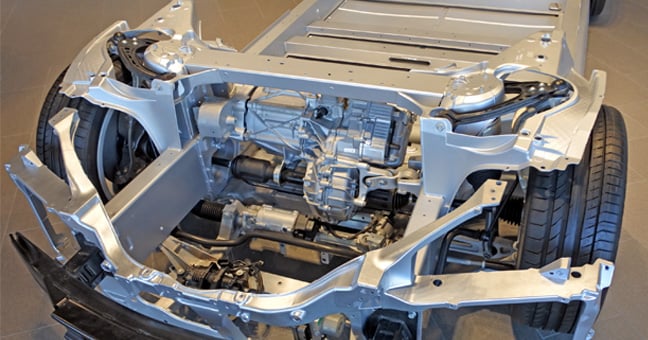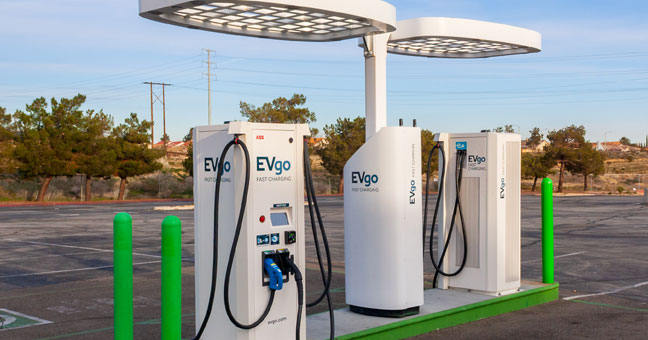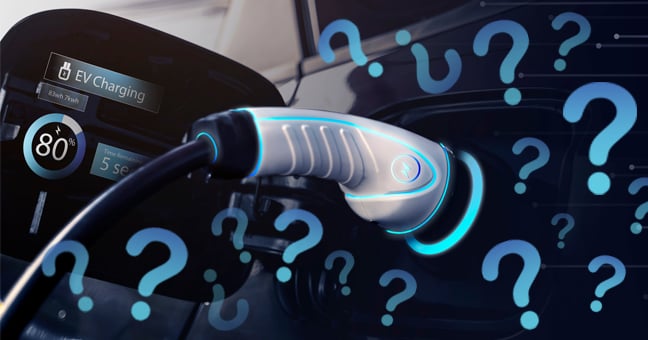The auto industry is going through a transformative period as technologies advance rapidly and vehicle manufacturers work tirelessly to electrify their model lineups to meet strict emissions regulations. The push towards electric vehicles is an exciting yet, in some ways, uncertain time for consumers and businesses alike. We've written a series of EV-related articles covering some major topics in the EV landscape, as well as some more specific topics for certain business use cases. Whether you're looking to learn more about how EVs function and how they differ from their ICE counterparts or the implications EVs have for the auto industry, we hope these articles help answer some of your most pressing questions.
Read MoreMay 12 2025
Mar 6 2025
The automotive industry experienced a shift last year towards more strategic growth as it navigated the evolving landscape of electric vehicles (EVs), autonomous vehicles (AVs), and new partnerships. While EV adoption continued to grow, the pace was slower than anticipated. Autonomous vehicle technology has continued to progress, and Bill Gates has stated that we will reach the tipping point with semi-autonomous vs fully autonomous vehicles within the next decade. Industry partnerships also became increasingly important as automakers sought to share resources, reduce costs, and accelerate innovation in an increasingly competitive environment.
This blog explores how these three interconnected trends - EV production adjustments, the development of autonomous vehicles, and the growing role of strategic partnerships - highlight the importance of a measured, adaptable approach to navigating an ever-changing market.
Read MoreTopics: Automotive Technology, Electric Vehicles
Dec 30 2024
Lithium-ion batteries, which power both fully electric and hybrid vehicles, are revolutionizing mobility and offering a cleaner alternative to gas-powered, internal combustion-based vehicles. However, a growing challenge lies beneath these batteries’ immediate eco-friendly benefits: recycling and reusing them. Due to the mining of scarce resources, EV battery recycling represents the most expensive component and largest logistical challenge for electric car adoption. A previous DataOne article discussed how EV batteries have a finite lifespan, and recycling can offer a more sustainable end-of-life solution. Understanding the impact of this technology requires examining the full picture – including the benefits of battery recycling, challenges, and drawbacks, and where the future of EV batteries is headed. Addressing these uncertainties today can lay the groundwork for a greener future.
Read MoreTopics: Electric Vehicles
Dec 23 2024
Electric vehicles (EVs) continue to gain traction in the automotive markets, posting record high sales volume and market share in 2024. As more consumers inquire about EVs, questions about charging options and battery longevity are natural, and confusion around the jargon for the different types of EV chargers can be expected. Various types of charging levels are available–each with its own speed, convenience, and impact on battery health. Properly understanding these choices can significantly extend your EV’s lifespan and preserve its performance.
A previous article by DataOne compared the steady, gradual charge rate of Level 1 to the rapid power of DC Fast Charging. Each charging option discussed in that article has unique benefits, potential drawbacks, and ideal use cases. However, by understanding how these charging speeds impact battery health, the everyday user can make more informed decisions that balance convenience and long-term performance for EVs.
Topics: Electric Vehicles
Sep 14 2023
Electric Vehicle (EV) charging stations are a novelty right now, but in the United States, they will become both ubiquitous and a necessity in the next decade. The 2030 National Charging Grid Report finds 2.3 million charging ports will be needed to accommodate the 28 million EVs expected to be on the road by 2030, but as of right now, only 160,000 exist nationwide. This will be an enormously expensive venture – grid analytics company Kevala believes that California alone will need $50 billion to accommodate its EV and emissions targets.
Utility companies will have an unprecedented amount of financial capital, scope of work, and public pressure to adapt their service areas to the EV era. While not applicable to all the challenges inherent in this transition, curated, in-depth, and accurate vehicle data will be essential to develop optimal grid planning strategies.
Topics: Electric Vehicles
Aug 24 2023
Legendary physicist Marie Curie once said “I was taught that the way of progress was neither swift nor easy,” and the United States’ inevitable nationwide shift toward fully electrified vehicles (EVs) is the perfect example of that sentiment. Many states have set ambitious initial zero-emissions targets as early as 2025, which will require radical infrastructure change and an exponential increase in consumer EV adoption.
The Inflation Reduction Act, California’s Advanced Clean Cars standards (which are opted into by an additional 14 states), and other state initiatives are kickstarting that adoption by offering numerous rebates and discounted billing programs for EV owners. These programs will present unprecedented operational challenges for the utility companies tasked with implementing and managing them. These challenges include parsing and processing a massive influx of new data, inconsistencies within that data, and continual shifts in guidelines and regulations that need to be followed as both the government and auto industry landscape evolves. This article will outline the core benefits of ongoing access to in-depth, 17-digit VIN data in ensuring a sustainable, productive response to the US’ electric vehicle transition.
Read MoreTopics: Electric Vehicles
May 16 2023
In a previous article, we discussed some of the key components of EVs and how they differ from the makeup of traditional internal combustion engine (ICE) vehicles.
Read MoreTopics: Electric Vehicles
May 9 2023
EVs continue to change the landscape of the auto industry at a rapid pace and many questions arise for consumers and businesses alike. In our previous EV article, we covered the topic of EV charging and charging infrastructure, one of the biggest factors in the adoption of EVs. As a follow-up, we thought it would be helpful to address some of the key components of an EV, as well as some of the ways in which they differ from their internal combustion engine (ICE) counterparts.
Read MoreTopics: Electric Vehicles
Mar 28 2023
Electric vehicles (EVs) are continuing to grow in popularity due to their environmental friendliness, cost savings, lower maintenance, and improved performance. However, one of the greatest obstacles holding back the worldwide adoption of EVs is infrastructure limitations for charging stations, especially in the U.S.
Read MoreTopics: Electric Vehicles
Dec 20 2022
As electric vehicles (EVs) continue to be one of the hot topics for discussion in the auto industry, and more consumers consider making the switch from their traditional internal combustion engine (ICE) vehicles, there are many questions that come along with EVs. Many of these questions are related to battery range and life expectancy, as well as charging infrastructure and the purchasing or leasing of EVs.
Though we were able to find many helpful resources that provide some great information on the questions included in this article, getting definitive answers has proven to be quite challenging, especially for some of the most pressing questions. In fact, researching answers to these questions has raised even more questions, which we will likely address in other articles. While we don’t have all the answers, we hope this article will help educate consumers, as well as other businesses in the industry looking to gain some EV knowledge.
Read MoreTopics: Electric Vehicles
